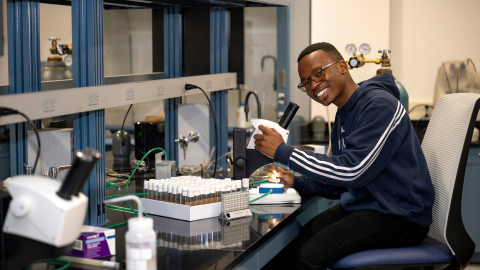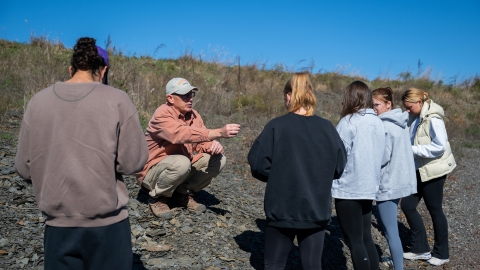Biology
Bachelor of Arts
Bachelor of Science
Master of Science
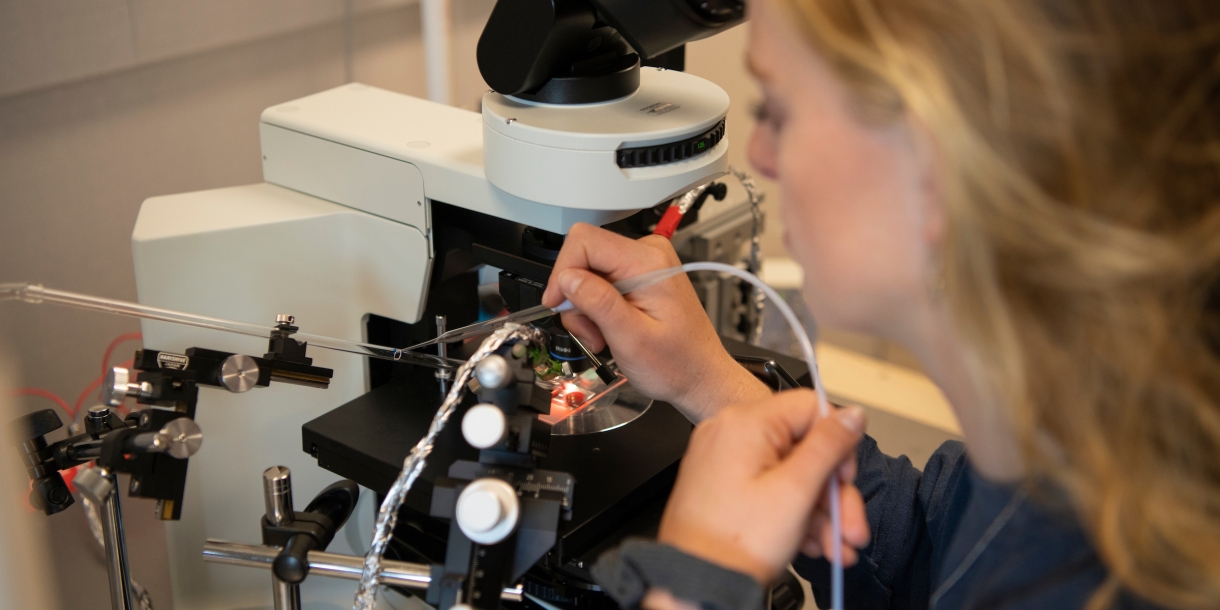
As a biology major at Bucknell, you'll get to know our internationally recognized faculty in small, intimate classes. Then you'll broaden your interests and peer in closer by working shoulder to shoulder with those professors as you examine the nature of life.
You'll do all this research in our well-equipped laboratories, including a fully-equipped microscopy and imaging center with an environmental scanning electron microscope, greenhouses growing hundreds of local and rare plants, a honey bee apiary and an outdoor salamander research facility. All of these tools for state-of-the-art molecular and integrative biology research — as well as opportunities to do field research on our University farm and in the lush environment around campus — will be available to you as an undergraduate student.
Where You’ll Go
As a biology major, you might accompany your professors on a field expedition to study seabirds in Alaska, wild eggplants in Australia, giant salamanders in Japan, or bats, bees, and lightning bugs here in Pennsylvania.
The experience you'll gain here will prepare you for your own career in research or, combined with our one-to-one pre-health advising, offer you a clear pathway to medical school.
Degree Programs
The Department of Biology offers both a bachelor of arts requiring eight biology courses and a bachelor of science requiring nine biology courses. Students in the bachelor of arts program may choose to specialize in cellular/molecular, organismal or ecological/evolutionary biology. Both degree programs emphasize laboratory techniques and encourage students to participate in independent, faculty-guided research projects.
A five-course minor in biology is also available for undergraduate students. Graduate students may earn a master of science in biology.
See major & minor requirements
Learn more about graduate studies in biology
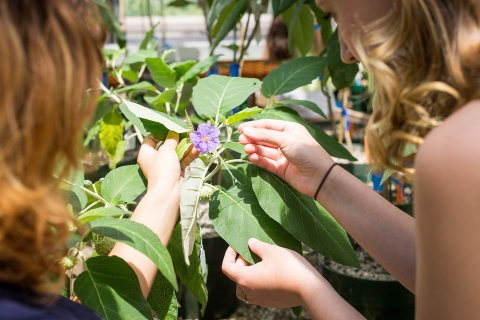
Deep Resources and State-of-the-art Labs
Bucknell's biology department has access to the deep resources of a research-focused institution, including an imaging center with an environmental scanning electron microscope, advanced molecular biology and physiology labs that include DNA sequencing and typing capabilities, an animal behavior facility, an 1,800-square-foot rooftop greenhouse growing rare plants from around the world, an herbarium with 20,000 plant specimens and an on-campus farm. And because we're an undergraduate-focused university, all of our students have opportunities to use them all.
Supporting Discovery Through Summer Research Experiences
Each summer, a significant number of biology students spend eight to 10 weeks on campus pursuing independent research projects or offering valuable aid to professors in faculty-guided research. These students receive free on-campus housing and a living stipend during their research fellowship, allowing them the freedom to fully devote their time to investigating an area of their own interest.
Explore the Life Sciences
At Bucknell, you don't have to be a biology major to study biology. Our biology curriculum includes courses from other science and liberal arts disciplines, and our faculty are active contributors to other programs and interdisciplinary courses, research studies and activities. In addition to biology, students interested in the life sciences should explore the following areas of study:
- The animal behavior major blends biology and psychology to examine study life from a variety of perspectives, including ecological, evolutionary and physiological dimensions.
- The cell biology/biochemistry major incorporates the study of biology and chemistry to study organisms at the cellular and molecular levels, preparing students for careers in biotechnology, medicine, pharmacology and related fields.
- The environmental studies and environmental science majors examine environmental challenges faced by humans from an array of perspectives, including anthropology, biology, chemistry, economics, engineering, geography, geology, history and philosophy. Environmental science is a complementary major that can add an environmental focus to a biology or other science major.
- The neuroscience major incorporates psychology, biology and chemistry studies to examine how the brain and nervous system interact with human behavior.
Teach STEM
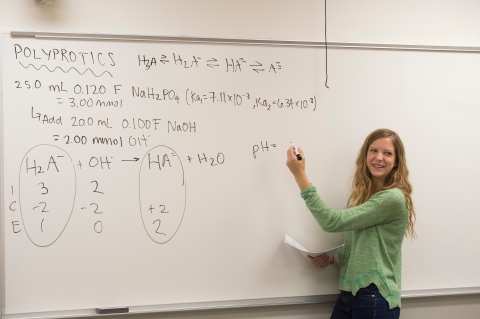
STEM majors at Bucknell can earn Pennsylvania state teaching certification in a variety of fields, including biology, chemistry, physics and math.
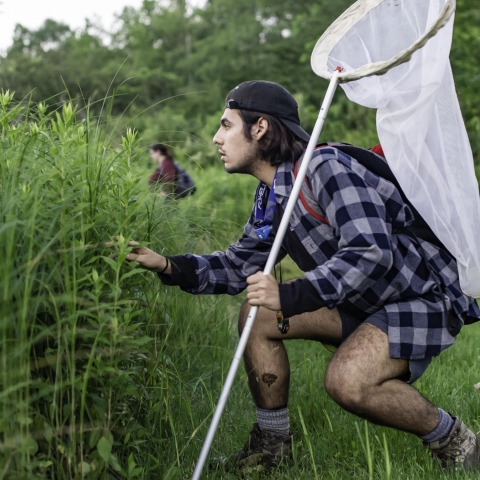
Light Up the World
Undergraduate Research
Bucknell University undergraduate students traveled to with biology professors Sarah Lower and Gregory Pask to western Pennsylvania to do research and scientific outreach to the general public at the annual Pennsylvania Firefly Festival.
Take a closer look at the Math & Science
Contact Details
Biology
Location
203 Biology Bldg




